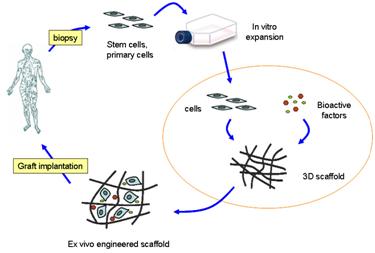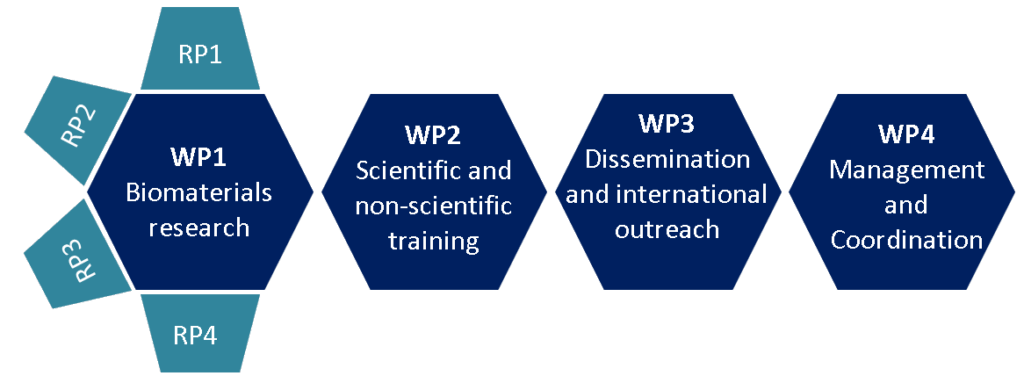Development of advanced biomedical materials
NeoGel will build on the unique combination of skills and technology in polymer chemistry, biomaterials science, advanced biomedical fabrication methods and medical technology, combined with commercialisation aspects available across the collaborators. Our core objective will be to convey, and embed these skills in four Early Stage Researchers (ESRs).
Repair of damaged tissue
The aim of advanced biomedical materials for regenerative medicine, or tissue engineering, is to repair damaged tissue and to reinstall its structure and function so that it is indistinguishable from the natural tissue. The successful development of advanced biomedical materials requires a multi-disciplinary and cross-sectoral approach combining materials science, fabrication, and biomedical science among others.
NeoGel simulates exactly this research scenario by the intimate collaboration between the two industrial (DSM) and academic (DCU) full partners, supported by associated partners providing additional expertise and specific training. NeoGel thus provides a perfect training environment for the next generation scientists and project leaders in industrial biomaterials development.

Education for a new generation of materials researchers
Our overall objective is to train researchers with the multidisciplinary thinking, planning ability and drive required to operate in a challenging field and to provide a lead for Europe in biomedical materials. This will be achieved through the development of a new biomaterials technology platform.
- The training objective is the education of a new generation of materials researchers, who can apply the tools of (bio) materials science and physics, material fabrication, (bio) medical science and commercialisation aspects in a collaborative environment. This will be reinforced by the unique assembly of expertise and credibility in each of these four aspects that the different laboratory environments of the NeoGel partners provide.
- The general S&T objective is to develop functional hydrogels. The programme will make use of translational approaches combining polymer synthesis, nanotechnology, analysis, advanced fabrication methods and biomedical testing.
NeoGel work packages
